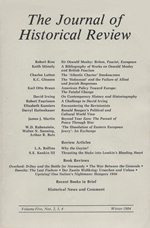Ronald Reagan’s Political and Cultural Folklore
This article focuses on the American dominant culture’s world view implicit in Ronald Reagan’s politics. Taking a New Left approach to cultural history, it assumes that proletarians, rural people, and “pre-modern” people are not the only social groups who have a folklore; that the American dominant culture also has a folklore; that if New Left…

